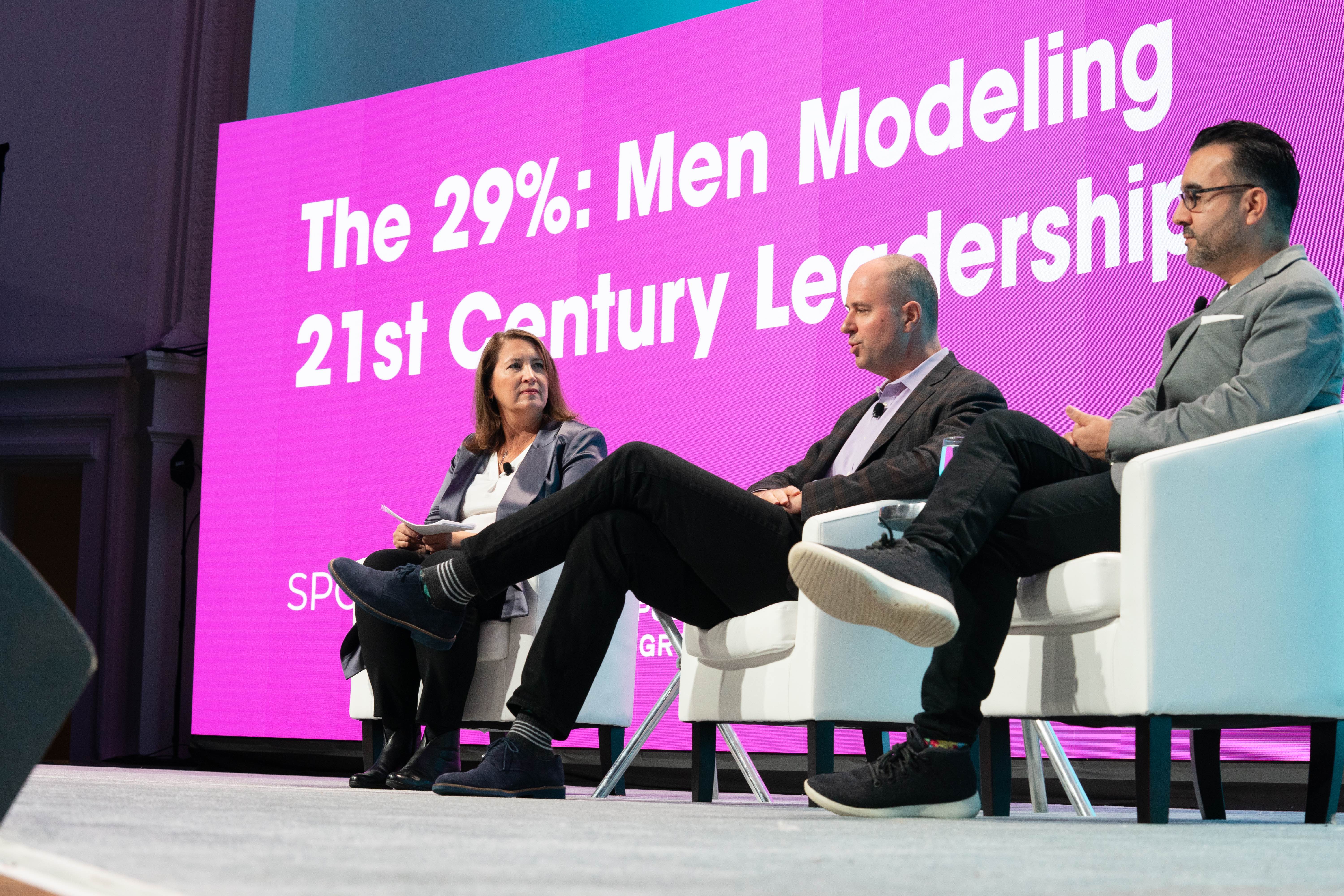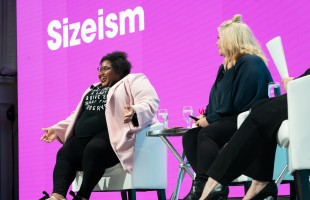
The 29%: Men Modeling 21st Century Leadership
Qadree Holmes is the Founder/Executive Producer of Quriosity Productions; a minority owned creative diversity boutique specializing in video production, post production and photography. Quriosity’s goal is to present to the market an MBE that can meet the challenges of working with brands while delivering exceptional service for our advertising clients. We want to be known for representing and employing a diverse creative talent roster including women and minorities that ultimately deliver and have a positive social impact and recognizable results. Qadree has successfully rose from intern to production assistant to producer and finally to the Founder/Executive Producer of Quriosity. While line producing, he recognized a significant shift in the market-clients and agencies were seeking integrated creative talent options to represent the different social channels now available. Conversely, they did not want to sacrifice quality or production value because budgets were shrinking.
Qadree is currently a board member for Free Spirit Media, AICP Midwest, Chicago Advertising Federation’s Diversity Thought Leadership Council, and the Advisory Board for the Midwest Independent Film Festival.
This discussion was led by Andrew Swinard, President of Leo Burnett North America and Justin Bell, CEO of Ominicom. Andrew began the discussion actually asking questions of the audience: How do we create equitable businesses? How do we increase engagement? How do we remove unconscious bias? He commented that 80% of Leo Burnett’s leadership are female, which on the surface seems great. However, he followed this up with acknowledging that they have failed overall as an agency when it comes to engaging people of color. He acknowledged as an agency they are on track to resolving the diversity issue with women, but with people of color they are not. Leo Burnett worked with an outside vendor to conduct interviews as they tried to map the individual relationship across the agency. Many of the talented people felt isolated with little awareness from managers and leaders.
Andrew shared a very candid story about how once the study was done he felt he needed to become more engaged with the employees, so he started to randomly show up throughout the floors of the building and would sit and observe and engage with the team. He shared how, while working on one floor, a group of non-minority employees all left to get coffee while a lone African American female remained working. She had not been invited to grab coffee with the group. He decided to sit with her and ask if she wanted to get coffee, and she said that with the president of the company working next to her there was no way she was leaving to go and get coffee. Clearly he was honored that she was dedicated to her job, but disturbed by the idea that if you are African American you still feel the need to do more and be better at your job. You’re essentially riddled with the fear of being lesser than and in the workplace that affects the decisions that you make. She had a mindset to show “I’m hardworking” as a minority. He was also saddened that the team that left for coffee was subconsciously not inclusive in that moment. They had not invited her.
As an African American, when I heard this story, I was shocked he shared this with the audience. As a minority business owner who services advertising agencies, this behavior that he describes has the trickle effect through all aspects of that company’s business. Having been invited to minority business shows at the agency and then leaving with no work or not even a reputable call for engagement, I’m not surprised. Overall this is a larger issue, and quite frankly, one that an agency as large as Leo Burnett will need to tackle. Other general market agencies are making stronger pushes to actually make change. It has been made quite clear in my experience at 3% that if you are not prepared to change, ultimately you will be out of business because the world is actually evolving and shifting as we become more culturally-blended in America.
When asked what they’re doing to combat the issues, Andrew mentioned that they have tried to recruit from Historically Black Colleges and universities. Most are located in the south and the harsh winters in Chicago typically lead to higher turnover. They have partnered with Chicago State University in an effort to increase minority involvement in their agency. Since CSU is local, Leo Burnett is not transporting someone from another region isolated from family and friends with our lovely harsh winters. Leo Burnett has implemented pay equalization across both the creative and strategy departments. They’ve created mandatory training on unconscious bias across the organization. In addition, Andrew acknowledges Renata McCann’s leadership within the agency, but noted that they need more senior leadership of color. He quoted, “Leaders need to inspire minorities to come into the industry and stay. If they don’t, they will fail.” He says that his inspiration for change is the African American lady that was not invited to get coffee.
Justin’s focus was geared toward how we change people’s lives for the better. Coming from a background in finance, his perspective seemed to be more metrics driven. “Diversity is easier to track and needs to represent the consumer base in the areas we populate,” he commented. Justin believes that companies need to begin tracking engagement, culture and how people feel, and he argued that you can actually quantify how engaged people are based on the final outcome in your organization. Compensation lends to performance of the individual which also informs the performance of the organization. Businesses need to be drivers that maximize on the opportunity of employees. Then Justin got into what seemed to be the buzz conversation at the conference which was a “belonging” metric. It’s a very simple concept: do I feel like I belong here? He addressed the crowd:
“We’ve created barriers and now we are quantifying and determining how to break those down to allow employees to lend their voices and be heard. It’s not one size fits all. It matters and leaders lead. Failed diversity has been broken for 20 years. If you are doing what everyone else is doing, you are failing. How do we differentiate the focus on this as a new capability? We are, by nature of the business, so siloed in client and team driven activities, with pockets of engagement and tracking the wrong things: Title, Level, Gender, and Ethnicity. Conscious inclusion is what is actually needed. We as leaders are responsible for driving inclusion. He asked the audience to disrupt the way we look at panels and have conversations. He said building forums and conversations are not enough.”
To be quite honest, I thought that hearing a metric-driven executive talk about this topic was going to be so disconnected from what the audience actually needed to hear. After all, I have a strong finance background from a previous life and knew exactly how finance people talk and engage. However, when he started making the above parallels, I realized my first impression was going to be crushed with a new way of thinking. By the end of the conversation, I applauded his discussion because, although numbers are consistent, what he really wants the industry to do is defy the odds and do something different. He is ultimately promising a truly unique and successful end result if you can master it.
I was left with one question though: How many more panels, discussions, and metrics do we need for companies to do the right thing? We know the statistics and we know the numbers. Race and gender bias are so structurally and culturally ingrained into the fabric of our America, and it proves we still have a long road to travel to find true equality in American business.




